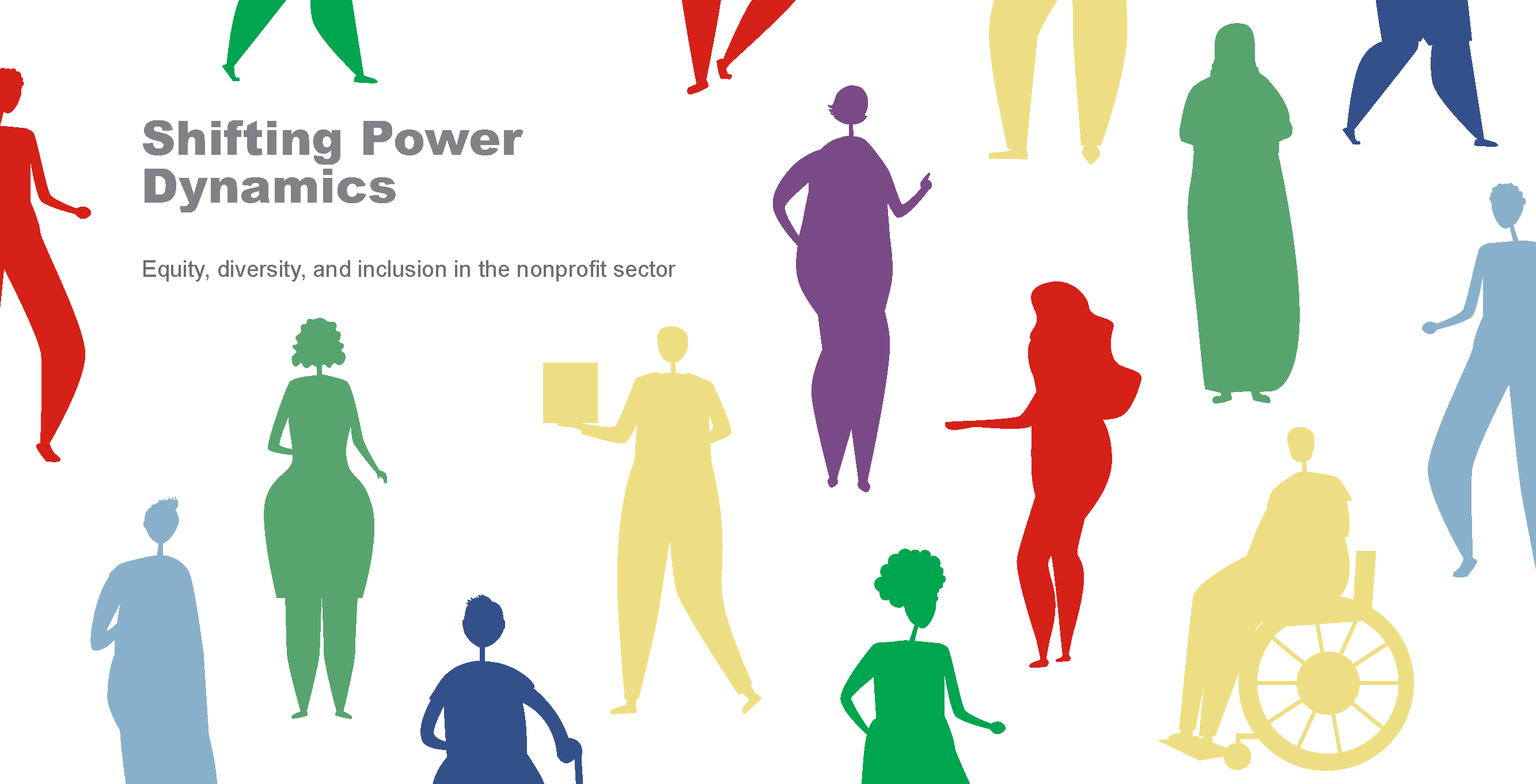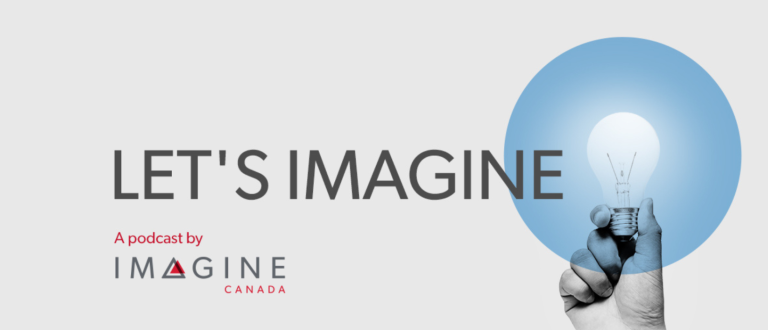This time of year is an opportune time to catch up on the things we’ve missed during the year and take stock of what happened in the nonprofit sector. If you’re like me, you have tons of stories bookmarked that you’re planning to dive into during your downtime.
As we reflect on the past year, what comes to mind are the macro forces, such as lasting pandemic impacts, inflation, the housing crisis, and constant environmental challenges and disasters that have created more demand for the services of charities and nonprofits. We thought the situation would improve after the pandemic, but unfortunately, many organizations across the country are still struggling to meet demand. This situation is exacerbated by financial precarity as well as HR challenges relating to staff and volunteer shortages - a reality even more stark for organizations led by & serving equity-seeking communities.
In this post, we’ve rounded up five important perspectives that contributed to shaping crucial conversations in the nonprofit sector in 2023. From the impact of the lack of core funding, grant writing perspectives for B3 (Black-led, Black-serving, Black-focused) organizations, the immigrant experience in our workforce, the rise of decent work and the findings of a recent study on equity, diversity and inclusion that call for white-led organizations to do more, these stories bring diverse perspectives and insights about our sector that can help you reflect, learn and take action.
If you’ve missed any of these stories this year, we encourage you to dive in now!
How the lack of core funding is impacting 2SLGBTQIA+ organizations
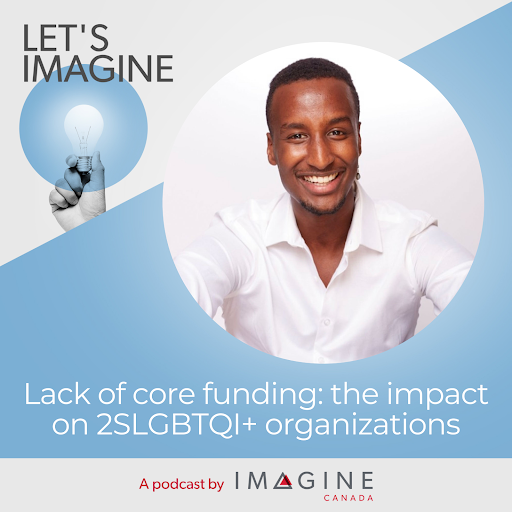 The lack of core funding has a dramatic impact on nonprofit organizations and the communities they serve. Not being able to count on reliable funding impacts organizational health, capacity and resilience, which in turn negatively impacts the quality of services organizations can offer their communities, but also the employment conditions of nonprofit workers, and the long-term sustainability of their organizations. Tyler Boyce, Executive Director of The Enchanté Network, shares his perspective on this crucial issue, from a 2SLGBTQIA+ community perspective.
The lack of core funding has a dramatic impact on nonprofit organizations and the communities they serve. Not being able to count on reliable funding impacts organizational health, capacity and resilience, which in turn negatively impacts the quality of services organizations can offer their communities, but also the employment conditions of nonprofit workers, and the long-term sustainability of their organizations. Tyler Boyce, Executive Director of The Enchanté Network, shares his perspective on this crucial issue, from a 2SLGBTQIA+ community perspective.
New study on equity, diversity and inclusion a wakeup call for white-led nonprofit organizations
This blog post dissects the findings from a recent study that explores what Canadian charities and nonprofits are doing to advance equity, diversity, and inclusion (EDI) within their organizations. Among the most notable key findings, the study shows while charities and nonprofits overwhelmingly express support for the principles of EDI, when it comes to concrete actions many - especially white-led organizations - are doing less than they can and should. This needs to change, but what can we collectively do to advance EDI in the sector? In addition to research highlights, this blog post includes a list of actionable recommendations for nonprofit leaders, as well as funders.
Titled Shifting power dynamics: Equity, diversity and inclusion in the nonprofit sector, this important research project was led by the Equitable Recovery Collective and supported by Scotiabank, The Canadian Red Cross Society, Community Foundations of Canada, and KCI.
Nonprofit workforce through the immigrant experience
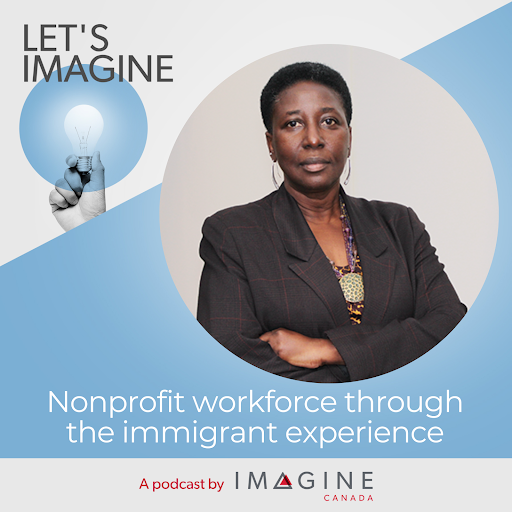 Employees in the nonprofit sector are more than twice as likely to be immigrants, and half of all jobs held by immigrant women in Canada are in the nonprofit sector. Charities and nonprofit organizations, which employ 2.4 million people, are, by far, the country’s biggest employer of immigrant women. While the contributions of immigrants to the sector are something to celebrate, the picture is not entirely rosy. Many immigrant women work in the nonprofit sector not by choice, but because they can’t find employment in other sectors.
Employees in the nonprofit sector are more than twice as likely to be immigrants, and half of all jobs held by immigrant women in Canada are in the nonprofit sector. Charities and nonprofit organizations, which employ 2.4 million people, are, by far, the country’s biggest employer of immigrant women. While the contributions of immigrants to the sector are something to celebrate, the picture is not entirely rosy. Many immigrant women work in the nonprofit sector not by choice, but because they can’t find employment in other sectors.
With Debbie Douglas, Executive Director of OCASI - the Ontario Council of Agencies Serving Immigrants, we discuss what nonprofits, government and employers in other sectors of the economy can do to improve working conditions and reduce employment barriers faced by immigrant workers.
Grounding perspectives for B3 organizations on grantseeking and grant writing
 Many charities and nonprofits are struggling with financial sustainability - and this is especially true of B3 organizations, groups, and networks. “Many are faced with capacity and system-related barriers, as well as increasing demands for accountability and unrealistic expectations for demonstrating impact,” writes guest author Yonatan Ghebray, from the Network for the Advancement of Black Communities (NABC). For B3 organizations, funding for their vital work in our communities is hard to come by - a reality that is only more acute because the pandemic has exacerbated pre-existing challenges and barriers.
Many charities and nonprofits are struggling with financial sustainability - and this is especially true of B3 organizations, groups, and networks. “Many are faced with capacity and system-related barriers, as well as increasing demands for accountability and unrealistic expectations for demonstrating impact,” writes guest author Yonatan Ghebray, from the Network for the Advancement of Black Communities (NABC). For B3 organizations, funding for their vital work in our communities is hard to come by - a reality that is only more acute because the pandemic has exacerbated pre-existing challenges and barriers.
In this post, Yonatan shares 8 grounding perspectives B3s need to think about when seeking and writing grants.
Decent work: the rise of the four-day work week
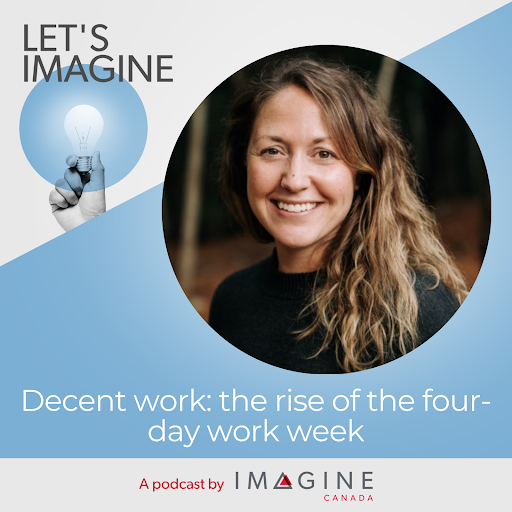 In recent years, a growing number of organizations, mostly companies, but also nonprofits, have started to explore new ways of working and providing more flexibility to employees. If the pandemic was the catalyst for the rise of decent work and the 4 day work week, competition for talent is certainly another factor. Here at Imagine Canada, we launched a 4 day work week pilot in January 2023, which we have extended until the end of 2024. In this episode, we discuss work-life balance and the rise of the 4 day work week with Annika Voltan, Executive Director of Impact Organizations of Nova Scotia, an organization that has tested a shorter work week.
In recent years, a growing number of organizations, mostly companies, but also nonprofits, have started to explore new ways of working and providing more flexibility to employees. If the pandemic was the catalyst for the rise of decent work and the 4 day work week, competition for talent is certainly another factor. Here at Imagine Canada, we launched a 4 day work week pilot in January 2023, which we have extended until the end of 2024. In this episode, we discuss work-life balance and the rise of the 4 day work week with Annika Voltan, Executive Director of Impact Organizations of Nova Scotia, an organization that has tested a shorter work week.

